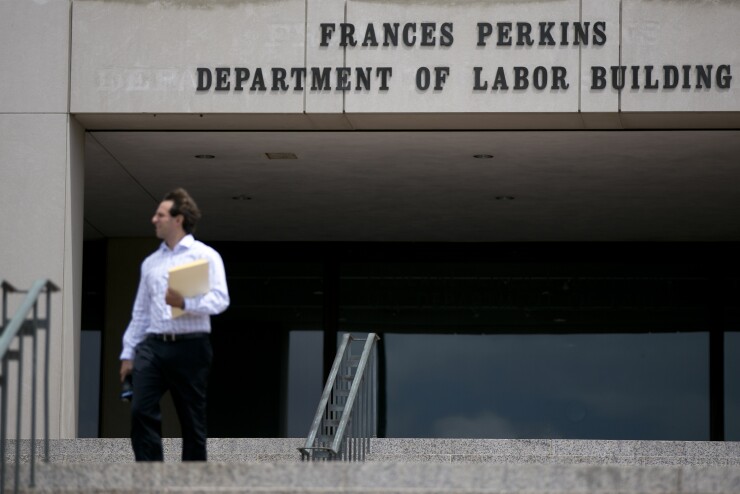The Department of Labor is now fighting a two-front war in defense of its new fiduciary rule, as another trade group has filed a suit in a Washington federal court, attempting to block the implementation of the new regulation before it takes effect next year.

The National Association for Fixed Annuities, which filed the suit last week, says the Labor Department "exceeded the authority granted to it by Congress."
NAFA's lawyers say the new rule “should not be allowed to stand.” In aiming to loosen the standards scheduled to take affect for fixed-indexed annuities, the association is seeking to vacate a provision addressing conflicts of interest among advisers.
NAFA calls the new rule “impermissibly vague” in its suit, arguing that the new regulations will result in job loss, falling revenues, and a “massive spike in compliance costs” for its members in the fixed annuity marketplace. It contends that “an estimated 20,000 independent insurance agents will exit the business of selling fixed annuities,” as a result of the new regulations, according to the filing.
NAFA's lawsuit came on the heels of a similar effort by other trade groups, including the U.S. Chamber of Commerce and SIFMA, who
U.S. Secretary of Labor Thomas Perez, who, along with the Labor Department, was named in both suits, disagrees with the chamber's assessment of the regulation’s impact. “Conflicted advice is eroding the savings of working Americans to the tune of $17 billion each year,” Perez said in a statement.
He says the regulation’s opponents are a “small, vocal minority” who want “to put their own interests first.”
The department did not respond to requests for additional comment.
Better Markets, a group formed after the 2008 financial crisis to lobby for financial reform, stood alongside the Labor Department in its support of the fiduciary rule.
“If Wall Street really cared about Main Street it would already act in clients’ best interest, rather than secretly pocketing tens of billions of dollars from hardworking Americans,” Better Markets President Dennis Kelleher said in a statement.
--With additional reporting from Bloomberg News.





